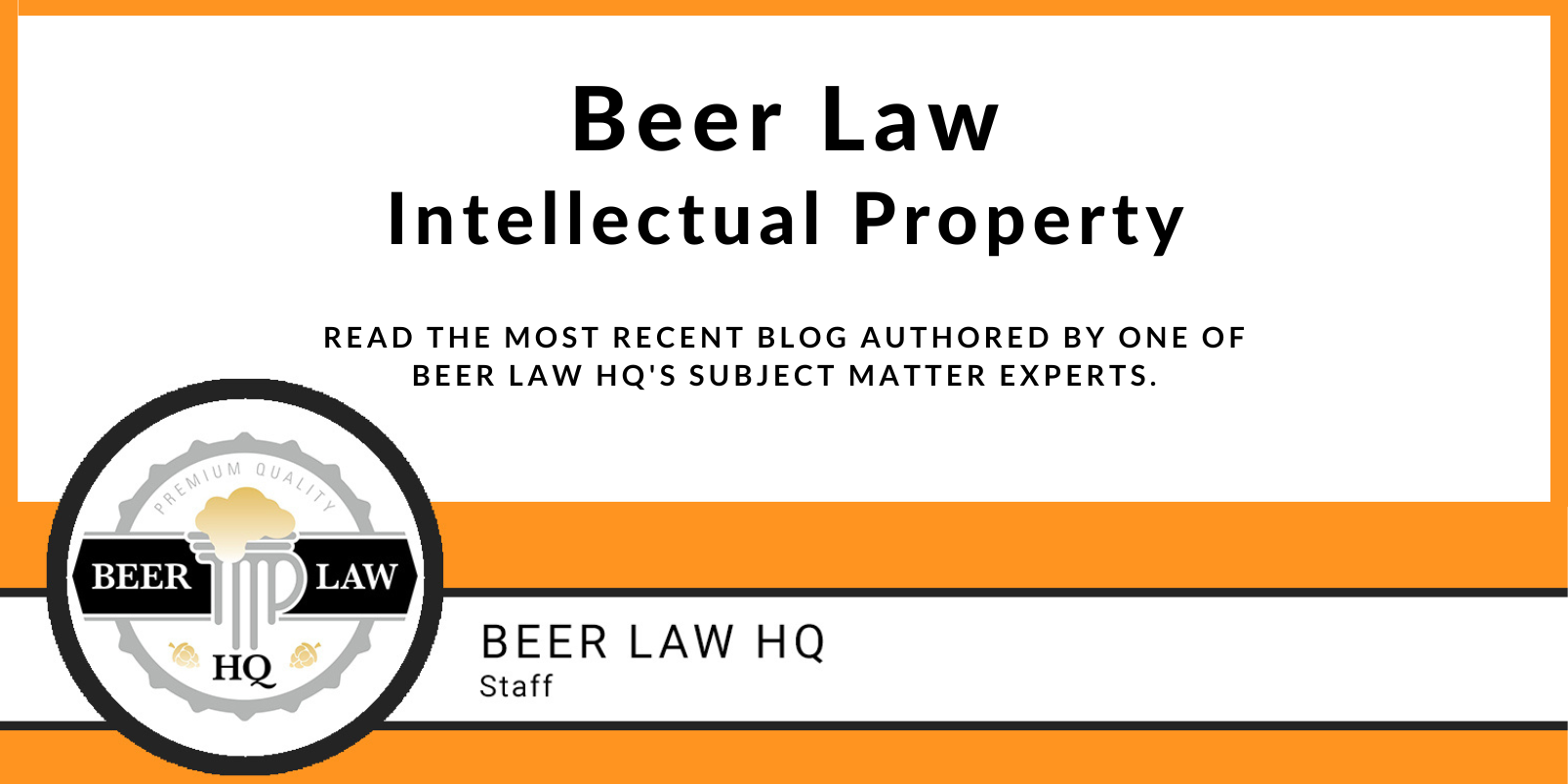The craft brewery of your dreams is about to become a reality. You have insurance to protect your brewery and equipment inside, but how can you protect your intellectual property?
Four Types of Intellectual Property
Intellectual property includes inventions or discoveries, domain names, business secrets, logos, and business or trade names. Each falls into one of four categories: patents, copyrights, trademarks, and trade secrets.
Patents are a 14- or 20-year government-approved exclusive property right to build, sell, and use your invention or discovery in exchange for disclosing the details of it to the public. No one may make, sell, or use your patent and compete against you during this period. A patent must be “new,” “non-obvious,” “useful,” and “patentable,” as defined by Congress and the courts. You can apply for three types of patents:
- Utility Patent: Protects improved or new machines, products, or processes and lasts for 20 years.
- Design Patent: Protects an object’s design or visual qualities and lasts 14 or 15 years.
- Plant Patent: Protects discovery or invention of a new asexual plant and can be combined with a utility patent or design patent. This patent lasts 20 years, but the patent application becomes public 18 months after filing with the U.S. Patent and Trademark Office (USPTO).
You may sell, license, or utilize your patent for personal or business gains. However, once the USPTO issues your patent, it is up to you to enforce it with the aid of your legal representation.
Copyrights differ from trademarks, though the two are often confused. Copyrights protect an author's original work, such as paintings, computer programs, books, blog posts, musical works, and, for breweries, label art. Once an original work is created, it is copyright-protected. The owner does not have to register it with the U.S. Copyright Office. However, registering the copyright strengthens its protection and allows you to seek monetary compensation and attorney’s fees. If an employee or contractor created your label as part of their employment, the employer owns the copyright to the label. Copyright laws allow you to reproduce the art on labels, create derivative works, license, transfer ownership of your copyright-protected item, make prints or stickers of your label art to sell, and display the art publicly for advertisement. Copyright protection can last up to 120 years from creation. Once the copyright protection has expired, those works become public domain, which means anyone can freely use them without penalty. It is vital to note that items posted on the intranet may have copyright protection, and you should not automatically consider them in the public domain.
Whereas copyrights protect tangible items, trademarks protect non-tangible property. Trademarks help consumers identify you in the marketplace from your competitors. Trademarks include your brewery name, logo, symbols, phrase, and designs. You become the trademark owner as soon as you begin using your trademark in conjunction with your brewery or products. However, your trademark rights are limited and only apply to your geographic area. You must federally register your trademark with the USPTO to have nationwide trademark protection and broader rights. If you own a trademark for a word or phrase, it does not mean you legally own it. You only own how these words or phrases are used in relation to your product or service.
The last type of intellectual property is a trade secret. Trade secrets are not public, carry information, and have economic value. Trade secrets include any information you would not want your competitors to know, such as customer or supplier information, especially prices, marketing strategies, formulas/processes/recipes, and any other confidential business information. Trade secrets did not receive the same protection as other intellectual property until the Defend Trade Secrets Act of 2016 (DTSA). DTSA now seeks to make a federal case for most misappropriating trade secrets claims. Therefore, you must protect your brewery’s information as a confidential trade secret, or you may lose the ability to claim them as trade secrets. Labeling information as “confidential” and using non-disclosure agreements are examples of protecting your trade secrets. If an issue arises, courts will look at the following:
- How much money and effort is spent developing the secret information, and how easily it may be duplicated?
- The extent to which this information is known outside of your organization.
- The extent to which this information is known by employees and others involved in the operation of your business.
- How valuable is this information to competitors?
- What measures your company took to protect the secrecy, including non-disclosure agreements?
Protecting your brewery team's creativity and hard work is no small feat. From registering your intellectual property with the Government to preparing non-disclosure agreements, Beer Law HQ can assist you with intellectual property protection. Additionally, we provide legal advice for copyright or trademark infringement, including creating and sending cease and desist letters. If you feel the weight of protecting your brewery is too heavy to carry alone, contact us today to learn how we can help protect your intellectual property rights.





